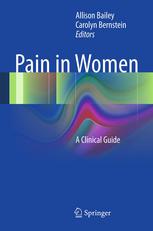

Most ebook files are in PDF format, so you can easily read them using various software such as Foxit Reader or directly on the Google Chrome browser.
Some ebook files are released by publishers in other formats such as .awz, .mobi, .epub, .fb2, etc. You may need to install specific software to read these formats on mobile/PC, such as Calibre.
Please read the tutorial at this link: https://ebookbell.com/faq
We offer FREE conversion to the popular formats you request; however, this may take some time. Therefore, right after payment, please email us, and we will try to provide the service as quickly as possible.
For some exceptional file formats or broken links (if any), please refrain from opening any disputes. Instead, email us first, and we will try to assist within a maximum of 6 hours.
EbookBell Team

0.0
0 reviewsPain is a complex experience, influenced by many variables. There is currently growing interest in the influence of sex and gender on the experience of pain. The fact that there are sex differences in pain and analgesia is now a well-recognized phenomenon within the field of pain medicine. However, the specific mechanisms underlying these differences remain somewhat poorly understood. Traditionally, these sex differences in pain experience have been attributed largely to psychological, behavioral and socio-cultural variables - in particular, a perceived greater willingness on the part of women to report painful symptoms and seek medical attention. Although psychosocial factors do influence pain perception, there is now substantial evidence to support a strong role for hormonal factors mediating sex differences in pain modulation. In Pain in Women: A Clinical Guide, a renowned group of experts in pain medicine breaks new ground in the field by synthesizing and elucidating the range of biological and neurohormonal factors underlying these conditions and clarifying potential treatment options based on these factors. The initial section of this unique title introduces the topic of pain in women and its importance and then goes on to describe hormonal and myofascial considerations in this patient population. The second section addresses specific pain disorders common in women and the various treatment options for these, including rehabilitative and complementary and alternative medicine (CAM) treatments. The third and final section covers the specific populations of the pregnant/postpartum woman, issues related to breast cancer, the female athlete, menopausal considerations and the role of physical therapy in women’s health. Timely and state-of-the-art, Pain in Women: A Clinical Guide is an important new reference that fills a significant need in the developing area of pain medicine.